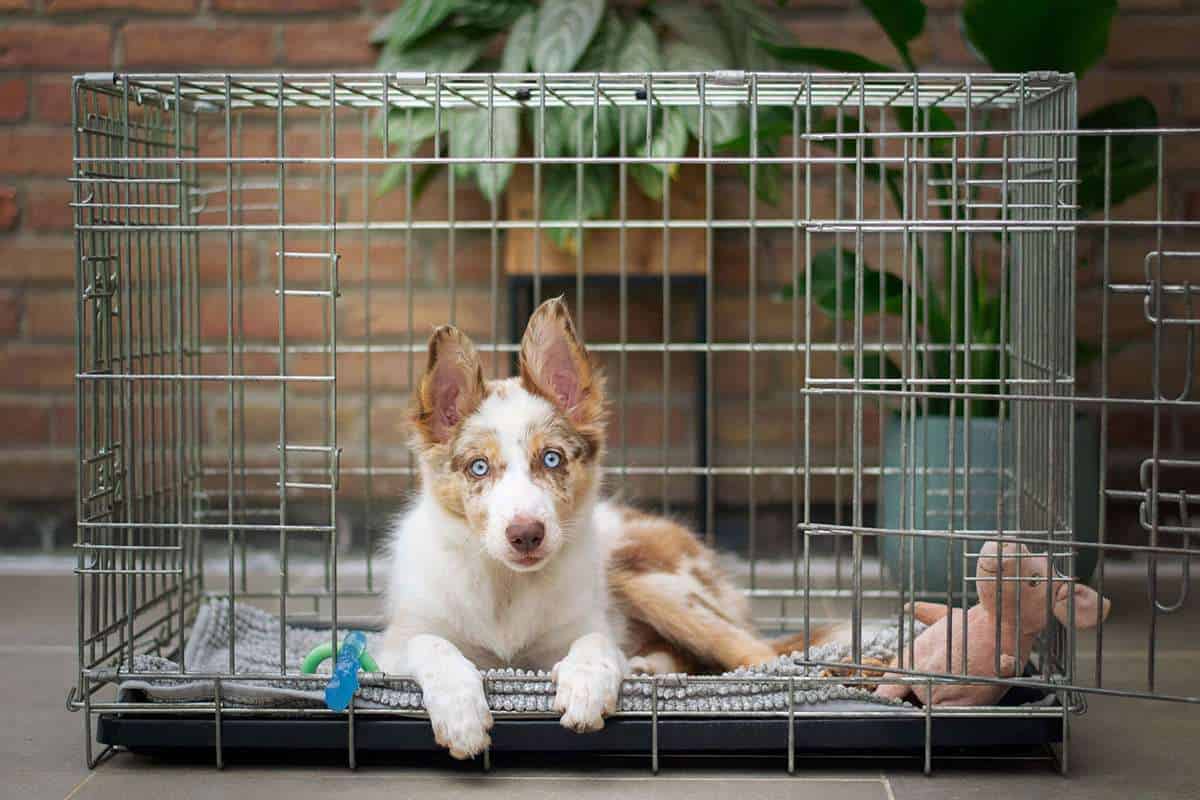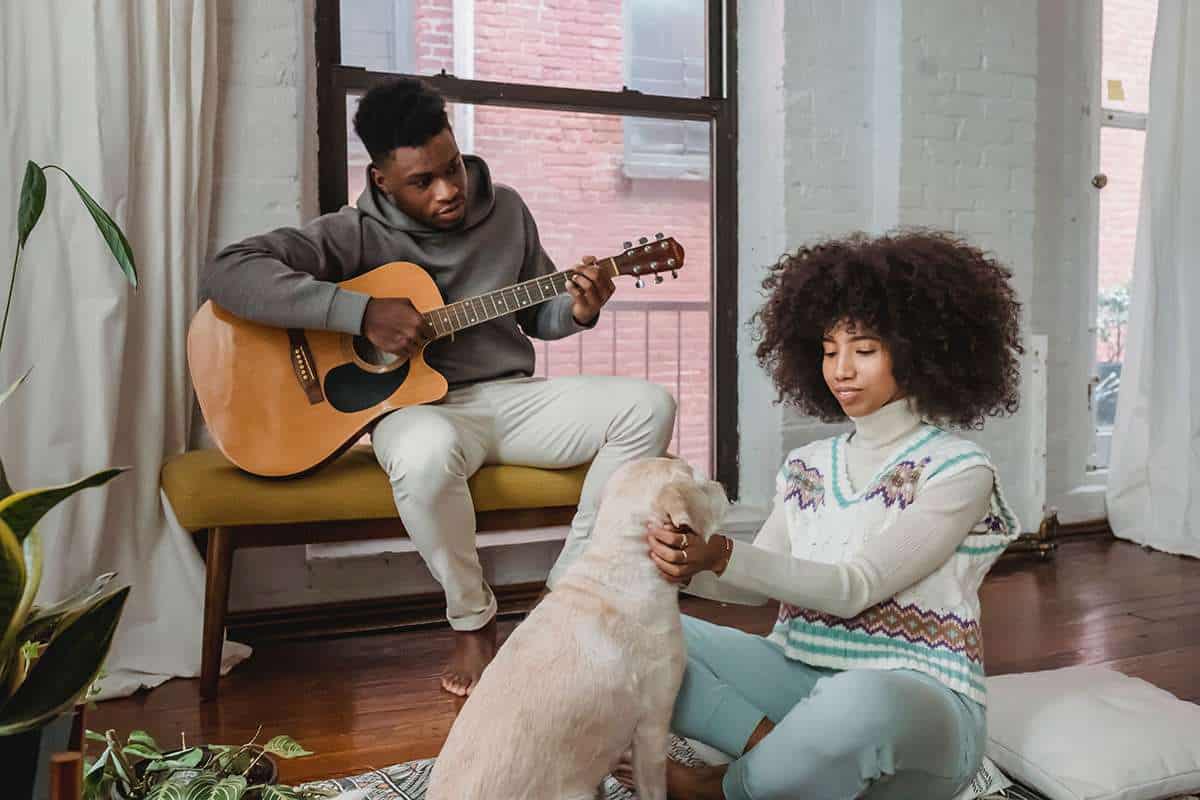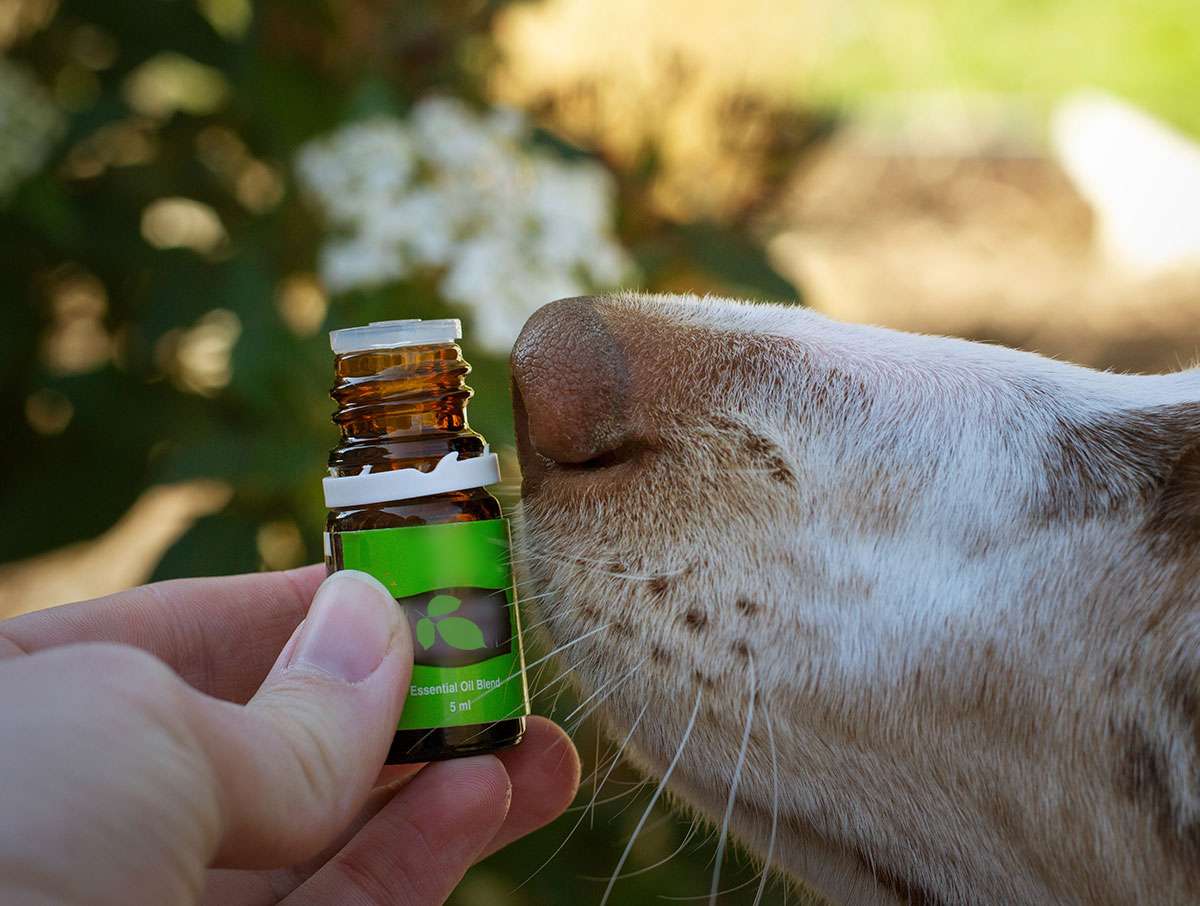Nighttime anxiety in dogs can lead to sleep disturbances, excessive barking, or destructive behavior. Noticed that your dog seems to be more anxious at night, it can be concerning and, at times, even frustrating. Understanding the causes of this anxiety and finding solutions can help your dog feel more relaxed and allow both of you to get a better night’s sleep. In this blog post, we’ll discuss some common reasons why dogs may experience anxiety at night and offer suggestions to help ease their nighttime stress.
Common Causes of Nighttime Anxiety in Dogs
Fear of the Dark: Just like humans, dogs can be afraid of the dark. In low light conditions, their vision is limited, which can make them feel more vulnerable and insecure. This fear can be heightened if your dog has experienced a traumatic event or negative experience in the dark.
Separation Anxiety: If your dog is used to being close to you during the day, they may experience separation anxiety when left alone at night. This can cause them to become anxious and distressed, leading to disruptive behaviors such as whining, barking, or scratching at the door.
Noises and Sounds: Nighttime often brings with it a variety of unfamiliar sounds, such as traffic, wildlife, or neighbors’ activities. These noises can be unsettling for your dog, causing them to feel anxious or on edge.
Age-Related Changes: Older dogs may experience cognitive decline, resulting in confusion and disorientation, particularly at night. This cognitive decline can lead to increased anxiety and restlessness.
Medical Issues: Pain or discomfort from underlying health problems, such as arthritis or gastrointestinal issues, can cause anxiety in dogs, especially at night when they may be more aware of their discomfort. Additionally, conditions like urinary tract infections or bladder stones can cause an increased need to urinate, leading to nighttime anxiety as your dog struggles to hold it until morning.
Solutions to Help Ease Nighttime Anxiety in Dogs
Create a Comfortable Sleep Environment: Make sure your dog has a cozy and comfortable place to sleep, such as a dog bed with soft blankets or a crate with familiar bedding. A calming dog bed designed to provide a sense of security can also be helpful for anxious dogs.
Night Light: If your dog is afraid of the dark, consider using a night light or leaving a small lamp on to provide a sense of comfort and security. This can help your dog feel more at ease and reduce their fear of the dark.
Establish a Consistent Routine: Dogs thrive on routine, and establishing a consistent bedtime routine can help reduce anxiety. This can include a short walk or playtime before bed, followed by a calming activity such as cuddling or gentle petting.
Provide Calming Aids: There are several calming aids available that can help reduce anxiety in dogs, such as calming collars, supplements, and pheromone diffusers. These products can be especially helpful for dogs experiencing nighttime anxiety due to fear or separation anxiety.
Soundproof the Sleep Area: If your dog is sensitive to nighttime noises, consider soundproofing their sleep area by using heavy curtains, white noise machines, or calming music. This can help block out or mask any disturbing sounds that may be causing anxiety.
Address Medical Issues: If you suspect that your dog’s nighttime anxiety is due to an underlying medical issue, consult with your veterinarian to identify and treat the cause. This may involve medication, dietary changes, or lifestyle adjustments to help alleviate your dog’s discomfort and anxiety.
Desensitization and Counterconditioning: For dogs that are fearful or anxious due to specific nighttime triggers, desensitization and counterconditioning techniques can be helpful. Gradually expose your dog to the source of their anxiety while providing positive reinforcement (such as treats or praise) to create a positive association with the trigger. This process should be done slowly and patiently to avoid overwhelming your dog.
Training and Mental Stimulation: Providing your dog with adequate mental stimulation and physical activity during the day can help tire them out and reduce anxiety at night. Engaging in training sessions, interactive play, or puzzle toys can help keep your dog’s mind occupied and promote relaxation at bedtime.
Medication: In some cases, dogs may require medication to help manage their nighttime anxiety. If your dog’s anxiety is severe and not responding to other interventions, consult with your veterinarian to discuss the possibility of prescription medication.
Professional Help: If your dog’s nighttime anxiety is persistent and not improving with at-home interventions, consider seeking the help of a professional dog behaviorist or trainer. They can provide personalized guidance and recommendations tailored to your dog’s specific needs.
Conclusion
Nighttime anxiety in dogs can be caused by a variety of factors, including fear of the dark, separation anxiety, noises, age-related changes, and medical issues. By identifying the cause of your dog’s anxiety and implementing appropriate solutions, you can help your dog feel more relaxed and comfortable at night. This may involve creating a comfortable sleep environment, establishing a consistent routine, using calming aids, addressing medical issues, or seeking professional assistance. By taking a proactive approach to managing your dog’s nighttime anxiety, you can improve their quality of life and ensure a better night’s sleep for both of you.
For further information on dog anxiety at night, check out these sites:
- Why is My Dog Anxious at Night? 5 Reasons For Doggy Night Nerves
- Dog Separation Anxiety At Night – Is Your Dog Barking Through The Night?




Leave a Reply